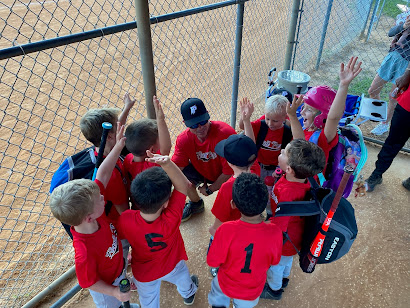Speak Up in Wrongful Death Lawsuits for Fair Compensation
Losing a loved one is an excruciating experience, especially when the death results from someone else's negligence or intentional harm. In such tragic circumstances, the survivors of the deceased may file a wrongful death lawsuit to seek compensation. These lawsuits aim to provide financial relief and justice to the grieving family. Advocating for fair compensation in wrongful death cases is crucial, as it ensures that the family receives adequate support and that responsible parties are held accountable.
Understanding Wrongful Death
Wrongful death refers to a legal claim against a person or entity responsible for causing someone's death through negligence, recklessness, or intentional actions. Common grounds for wrongful death lawsuits include medical malpractice, car accidents, workplace accidents, and criminal activities. Each state in the United States has specific statutes governing wrongful death claims, but the overarching principle remains the same: to provide compensation for the survivors' losses.
The eligibility to file a wrongful death claim varies by state, but generally, immediate family members such as spouses, children, and parents have the right to file. In some cases, extended family members, life partners, or financial dependents may also have standing. The representative of the deceased's estate can file a claim on behalf of the survivors if the eligible parties agree to it.
The Importance of Fair Compensation
The death of a family member often leads to significant financial strain. The deceased may have been the primary breadwinner, and their sudden loss can jeopardize the family's financial stability. Fair compensation covers lost wages, future earnings, and benefits the deceased would have provided. It also includes funeral and burial expenses, which can be substantial.
While no amount of money can compensate for the emotional pain of losing a loved one, fair compensation acknowledges the psychological impact on the survivors. It includes damages for loss of companionship, mental anguish, and emotional suffering. These non-economic damages are essential for recognizing the profound emotional toll a wrongful death can have on a family.
Fair compensation in wrongful death lawsuits serves a broader societal purpose by holding negligent parties accountable. It acts as a deterrent, discouraging individuals and entities from engaging in reckless or negligent behavior. When wrongdoers face substantial financial penalties, it promotes higher standards of care and safety across various sectors, including healthcare, transportation, and workplaces.
Calculating Fair Compensation
Economic damages are quantifiable financial losses resulting from the deceased's death. They include:
Medical Expenses: Costs incurred for medical treatment before the deceased's death.
Funeral and Burial Costs: Expenses related to the funeral, burial, or cremation.
Lost Wages and Benefits: Compensation for the income the deceased would have earned had they lived.
Loss of Services: The value of household services the deceased provided, such as childcare or home maintenance.
Non-economic damages are more subjective and cover the intangible losses experienced by the survivors. They include:
Pain and Suffering: Compensation for the emotional distress and suffering caused by the wrongful death.
Loss of Consortium: Damages for the loss of companionship, affection, and support the deceased provided.
Loss of Parental Guidance: Compensation for children who lose the guidance and nurturing of a deceased parent.
In cases involving egregious misconduct or gross negligence, punitive damages may be awarded. These damages are intended to punish the wrongdoer and deter similar behavior in the future. They are not linked to the survivors' losses but serve as a societal condemnation of the wrongful conduct.
Challenges in Obtaining Fair Compensation
One of the primary challenges in wrongful death lawsuits is proving that the defendant's actions directly caused the death. This requires substantial evidence, including witness testimony, expert opinions, and documentation. The burden of proof lies with the plaintiffs, making it essential to gather compelling evidence to support the claim.
Quantifying non-economic damages like emotional pain and suffering is inherently challenging. These losses are subjective and vary significantly from one case to another. Expert testimony from psychologists or mental health professionals can help substantiate these claims, but determining a fair monetary value remains complex.
Wrongful death lawsuits involve navigating intricate legal procedures, including filing claims within statutory deadlines, complying with state-specific regulations, and managing court processes. Families often need experienced attorneys to guide them through these complexities and advocate effectively on their behalf.
The Role of Attorneys in Advocating for Fair Compensation
Experienced wrongful death attorneys bring a wealth of knowledge and expertise to the table. They understand the nuances of wrongful death statutes, the evidence required to prove liability, and the methods to calculate fair compensation. Their experience enables them to build a robust case and negotiate effectively with insurance companies or defense attorneys.
Attorneys have access to investigative resources that can be crucial in building a wrongful death case. They can employ private investigators, accident reconstruction experts, medical professionals, and other specialists to gather and analyze evidence. This comprehensive approach ensures that all aspects of the case are thoroughly examined.
A skilled attorney is adept at negotiating fair settlements with insurance companies or opposing parties. If a fair settlement cannot be reached, they are prepared to take the case to trial. Their litigation skills and courtroom experience are vital in presenting a compelling case to the judge or jury.
Advocating for fair compensation in wrongful death lawsuits is essential for providing financial stability and emotional support to the survivors. It ensures that negligent parties are held accountable and promotes higher standards of care and safety in society. While the process of obtaining fair compensation can be challenging, experienced wrongful death attorneys play a crucial role in navigating these complexities and fighting for justice on behalf of grieving families. Ultimately, fair compensation acknowledges the profound loss experienced by the survivors and helps them rebuild their lives after a tragic and untimely death.

Comments
Post a Comment